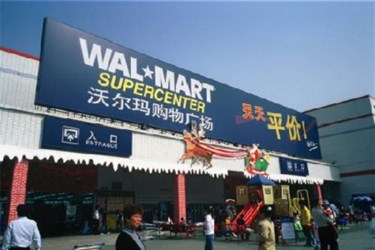Walmart Ups Food Safety Spending In China
By Isaac Fletcher, contributing writer, Food Online

In order to decrease food safety issues and gain consumer confidence in the region, Walmart is tripling its planned investment in China through 2015
On June 17, Walmart revealed plans to increase its spending on food safety in China to $48.32 million — up from the previous $16.1 million — in 2013, 2014, and 2015. The company says it plans on increasing rates of supplier inspections and DNA testing on meat products. Additionally, Walmart aims to test more of its stores in the region with its two mobile-safety labs.
China’s food and grocery market, expected to surpass $1.5 billion by 2016, is crucial for large retailers like Walmart, and food safety is currently a top consumer concern. The company has recently been criticized on the issue, which is a very sensitive topic in China. In the not so distant past, Chinese consumers have dealt with problems such as melamine-tainted milk, cadmium-tainted rice, and recycled “gutter oil” used for cooking. As for Walmart’s contribution to food safety fears, the company came under attack earlier in the year after its “Five Spice” donkey meat was discovered to contain fox meat. The company also came under fire in 2011 when it was fined for selling expired duck meat.
Protect Your Brand: Ensuring Food Safety And Compliance With A Quality Management System
Issues like these have spurred Walmart to invest more in supply-chain management. The company currently has about 7,000 food suppliers in China, and in recent years has cut four percent of suppliers for failing audits or DNA tests. Paul Gallemore, Walmart China’s Chief Compliance Officer, explains, “We face similar challenges to all other retailers in China when it comes to sourcing products. We have zero tolerance [for adulterated goods].”
Gallemore also says Walmart’s contact with Chinese food safety regulators is currently on an “ad hoc” basis, but it is aiming for more regular meetings in the near future. The retail giant currently operates more than 400 facilities in China and plans on opening 110 new facilities between 2014 and 2016, 15 to 30 of which it hopes to open over the next 18 months.
